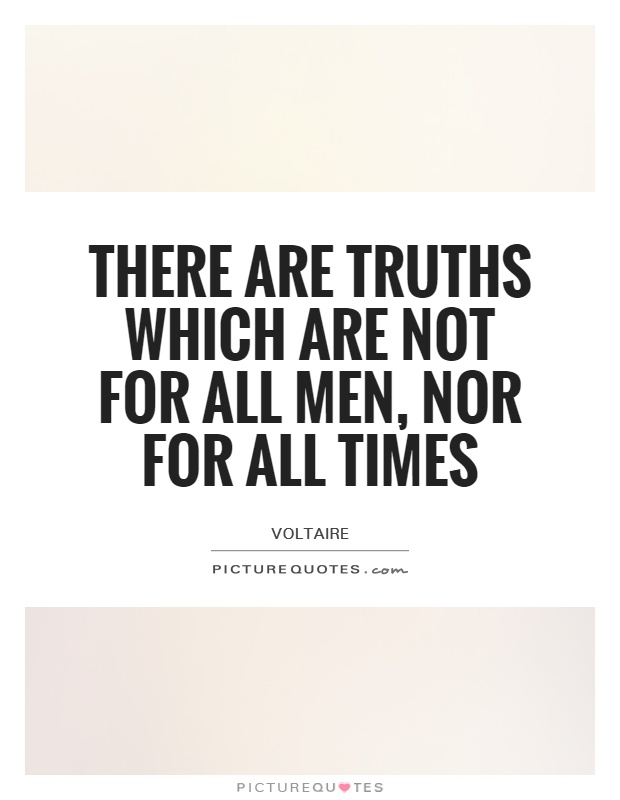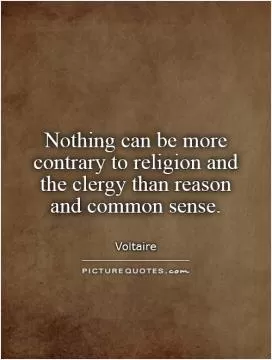There are truths which are not for all men, nor for all times

There are truths which are not for all men, nor for all times
Voltaire, the renowned French philosopher and writer of the Enlightenment period, was a firm believer in the idea that there are truths which are not meant for all men, nor for all times. This concept is reflected in many of his works, where he challenges traditional beliefs and questions the established norms of society.One of the key themes in Voltaire's writing is the importance of individual freedom and the right to think for oneself. He believed that each person should be able to seek out their own truths and form their own opinions, rather than blindly accepting the beliefs imposed upon them by society or authority figures. In his famous work, "Candide," Voltaire satirizes the idea of blind optimism and the belief that everything in the world is for the best. Through the character of Candide, Voltaire explores the idea that individuals must question the truths they are presented with and seek out their own understanding of the world.
Voltaire also believed that certain truths are not meant for all times. He recognized that society is constantly evolving and that what may be considered true or acceptable in one era may not hold true in another. In his work, "Letters on the English," Voltaire praises the English system of government and religious tolerance, arguing that it is more enlightened and progressive than the systems in place in France at the time. He believed that society must be willing to adapt and change in order to progress and that truths must be reevaluated in light of new knowledge and understanding.
Overall, Voltaire's belief in the existence of truths that are not meant for all men, nor for all times, reflects his commitment to individual freedom, critical thinking, and progress. He encourages his readers to question established beliefs and seek out their own truths, while also recognizing the importance of adapting to new knowledge and changing societal norms. Voltaire's ideas continue to be relevant today, as we grapple with questions of truth, freedom, and progress in our own society.












 Friendship Quotes
Friendship Quotes Love Quotes
Love Quotes Life Quotes
Life Quotes Funny Quotes
Funny Quotes Motivational Quotes
Motivational Quotes Inspirational Quotes
Inspirational Quotes